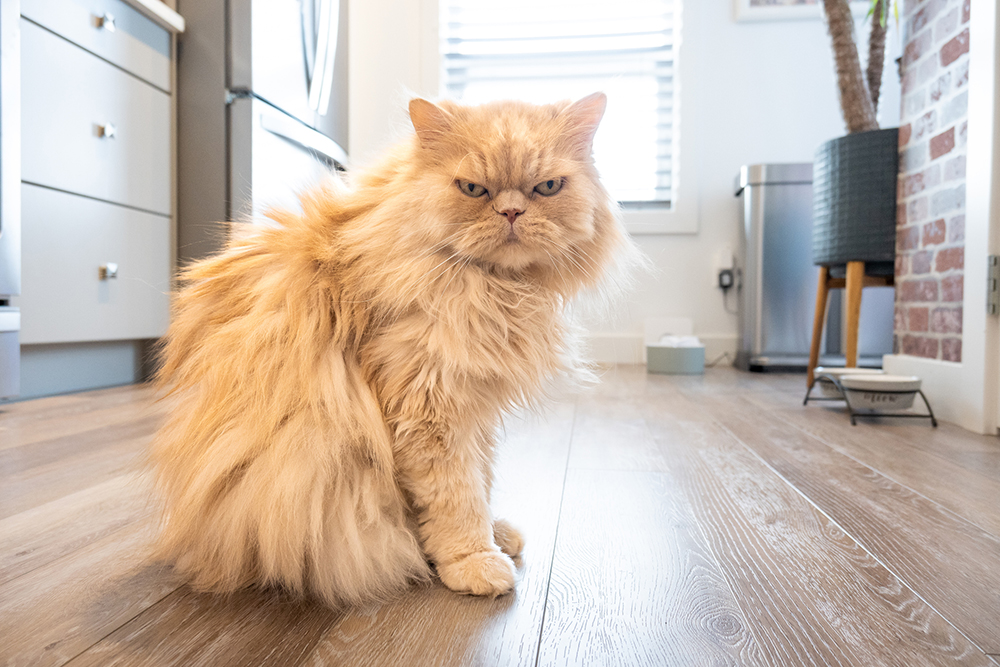Cat Vomiting: 10 Causes and How to Help
As loving pet owners, we always strive to keep our feline friends healthy and happy. However, it’s not uncommon for cats to experience occasional bouts of vomiting. While vomiting can be a normal bodily response in certain situations, it can also indicate underlying health issues that require attention. In this blog, we will explore the ten most common causes of cat vomiting and provide helpful tips on how to alleviate your cat’s discomfort. If you notice frequent or severe vomiting in your cat, it’s essential to consult with the experts at Lagniappe Animal Hospital for a proper diagnosis and treatment plan. Let’s dive in!

Understanding Cat Vomiting
Vomiting is the expulsion of stomach contents through the mouth and is often accompanied by retching and heaving. While occasional vomiting may not be cause for alarm, persistent or recurrent vomiting can be a sign of an underlying health problem. Here are ten potential causes of cat vomiting and how you can help your feline companion find relief.
Hairballs: Common Culprits of Cat Vomiting
Hairballs are a common issue for cats, especially those with long or thick fur. When cats groom themselves, they ingest loose hair, which can accumulate in their stomachs and form hairballs. These hairballs can cause irritation and trigger vomiting. Regular brushing and the use of hairball control diets or lubricant gels can help reduce the occurrence of hairballs.
Dietary Indiscretion: When Cats Eat Something They Shouldn’t
Cats are curious creatures, and sometimes their curiosity leads them to eat things they shouldn’t. Ingesting foreign objects, toxic plants, spoiled food, or even a sudden change in diet can cause gastrointestinal upset and vomiting. It’s important to keep potentially harmful substances out of your cat’s reach and to introduce new foods gradually to prevent dietary indiscretion.
Food Allergies: Identifying Triggers for Vomiting
Just like humans, cats can develop allergies to certain foods. If your cat is vomiting after eating a particular type of food, it could be a sign of a food allergy. Common allergens for cats include dairy products, beef, fish, and grains. Consult with your veterinarian to determine the underlying cause and find an appropriate hypoallergenic diet for your furry friend.
Intestinal Parasites: Unwanted Guests in Your Cat’s Digestive System
Intestinal parasites such as worms can infest your cat’s gastrointestinal tract and cause vomiting, along with other symptoms like diarrhea and weight loss. Regular deworming and preventive treatments can help keep parasites at bay. If you suspect your cat has worms, bring a fresh stool sample to your veterinarian for analysis.
Gastrointestinal Obstruction: When Something Blocks the Path
Gastrointestinal obstruction occurs when a foreign object or material obstructs the normal flow of food through the digestive system. This can be a life-threatening condition, causing severe vomiting, abdominal pain, and a loss of appetite. Immediate veterinary intervention is crucial to remove the obstruction and restore proper gastrointestinal function.
Inflammatory Bowel Disease: Chronic Inflammation and Vomiting
Inflammatory bowel disease (IBD) is a chronic condition characterized by inflammation of the gastrointestinal tract. Cats with IBD often experience vomiting, diarrhea, and weight loss. A thorough examination by your veterinarian, including blood work and possibly a biopsy, is necessary for an accurate diagnosis. Treatment may involve dietary changes, medication, and managing stress.
Pancreatitis: Inflammation of the Pancreas
Pancreatitis is the inflammation of the pancreas and can cause vomiting, abdominal pain, and loss of appetite in cats. The exact cause of pancreatitis is often unknown, but it can be triggered by a high-fat diet, obesity, certain medications, or other underlying health conditions. Prompt veterinary care is crucial to manage pancreatitis and prevent further complications.
Kidney Disease: Renal Issues and Vomiting
Chronic kidney disease (CKD) is a common condition in older cats and can lead to vomiting, increased thirst, weight loss, and decreased appetite. The kidneys play a vital role in filtering waste products from the blood, and their dysfunction can result in toxin buildup. Early detection and appropriate management, including a special kidney-friendly diet, can help slow the progression of CKD.
Liver Disease: Hepatic Problems and Vomiting
Liver disease can manifest in cats as vomiting, jaundice, weight loss, and lethargy. The liver plays a crucial role in digestion, metabolism, and detoxification. Various conditions, including infections, toxins, and cancer, can affect the liver’s function. A thorough evaluation by your veterinarian, including blood work and imaging, is essential for diagnosing and managing liver disease.
Cancer: A Serious Cause of Vomiting in Cats
Unfortunately, vomiting can also be a symptom of various cancers in cats. Tumors in the gastrointestinal tract, liver, pancreas, or other organs can disrupt normal digestive function, leading to vomiting. If your cat’s vomiting is persistent, unexplained, or accompanied by other concerning symptoms, it’s crucial to seek veterinary attention for a thorough examination and potential diagnostic tests.
Cat vomiting can have numerous causes, ranging from benign issues like hairballs to more serious conditions like cancer. As a responsible pet owner, it’s essential to monitor your cat’s behavior and seek veterinary care if vomiting becomes frequent or severe. The experienced team at Lagniappe Animal Hospital is here to help diagnose the underlying cause of your cat’s vomiting and provide appropriate treatment options. Remember, early intervention can make a significant difference in your cat’s well-being. Don’t hesitate to book an appointment today and give your feline companion the care they deserve.

